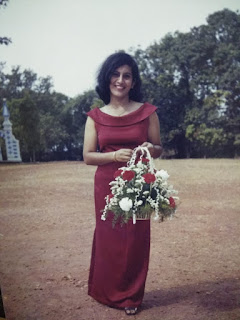A few
days ago I saw a fairly attractive couple, braced with infants strapped to
their torsos, absorbed in shopping for infants' items in GVK mall! The only difference
was they were both men. Two daddies with their two babies. Another scene on
Independence Day at KBR Park in Hyderabad. A group of ten youth did the Freedom
Walk with posters stuck to their T-shirts. Each poster was worded differently.
“If being gay is a choice, then when did you decide to become straight?” “I’m
not gay but I support gay rights because I believe in freedom of love.” “I
kissed a girl and I liked it.” The sight evoked curiosity. Some read the
posters, and were aghast. And some read a few words and shied away from reading
further.
 |
| (Designed by Amar Mitra) |
Instances,
such as these, of lesbian and gay visibility are increasing by the day. And that’s
something extremely refreshing and positive. Yet that does not happen in all
places. There are some who take objection to that. A friend asked whether gay
people have to wear their sexuality on their sleeve.
Homosexuals
would not have to wear their sexuality if they were in a society where they
were considered equal. I’m sure you have not seen heterosexual men and women
walking in a parade, holding banners stating their heterosexual preference.
They do not have to. They are not discriminated against within their families
and work places because they love or are attracted to someone of the same sex.
They do not have to live in insecurity of whether it is fine to share about
their life with someone they consider close, out of fear of losing a
relationship. They do not experience hatred or confusion or silence from their
closest relatives, only because society and the state does not acknowledge and
validate homosexual relationships.
The pride
of being homosexual is a personal experience which manifests itself as a
political act. It is a desire to be acknowledged for who one is in society. It
is an invitation for others to accept them for who they are and for who they
love. It is cry for wanting to have the same rights as those who love a person
of the opposite sex. It is a hope that some more people would be considered
equal and not be discriminated for loving another person.
This need
to come out is an intrinsic act of survival. One might wonder why some
homosexuals do not feel need to foreground their sexual orientation, while
others do. The reasons could be various. For some the risks are very high,
which would involve the loss of their loved ones, threat to financial security,
or perhaps a certain kind of middle class “shame” to the family. For some
others, it is the inability to live a life of suffocation where homosexual
relationships are not even recognized, least of all considered a norm. While
for a few others, their sexuality is visible and their personal, social and
economic lives depend upon how others treat them.
Our
stubbornness to acknowledge and accept homosexuality has only deteriorated
heterosexual marriages. The parental expectations of their children’s marriage,
the fictitious belief that the “gay phase” is transitory and the possibility of
social ostracism have only led to many unhappy and torturous marriages. Often
it is the most vulnerable who have to pay the price. Those who can afford it,
get divorced. Most languish in their unhappy marriages. Others commit suicide.
Little do we realize that every time in every conversation that we denounce homosexuality,
we are unconsciously condemning someone to life of affliction.
For the
moment we take great pride that we not only have those who risk themselves
fighting for gay rights and but also those who live their lives quietly forging
new kinds of relationships and families.




